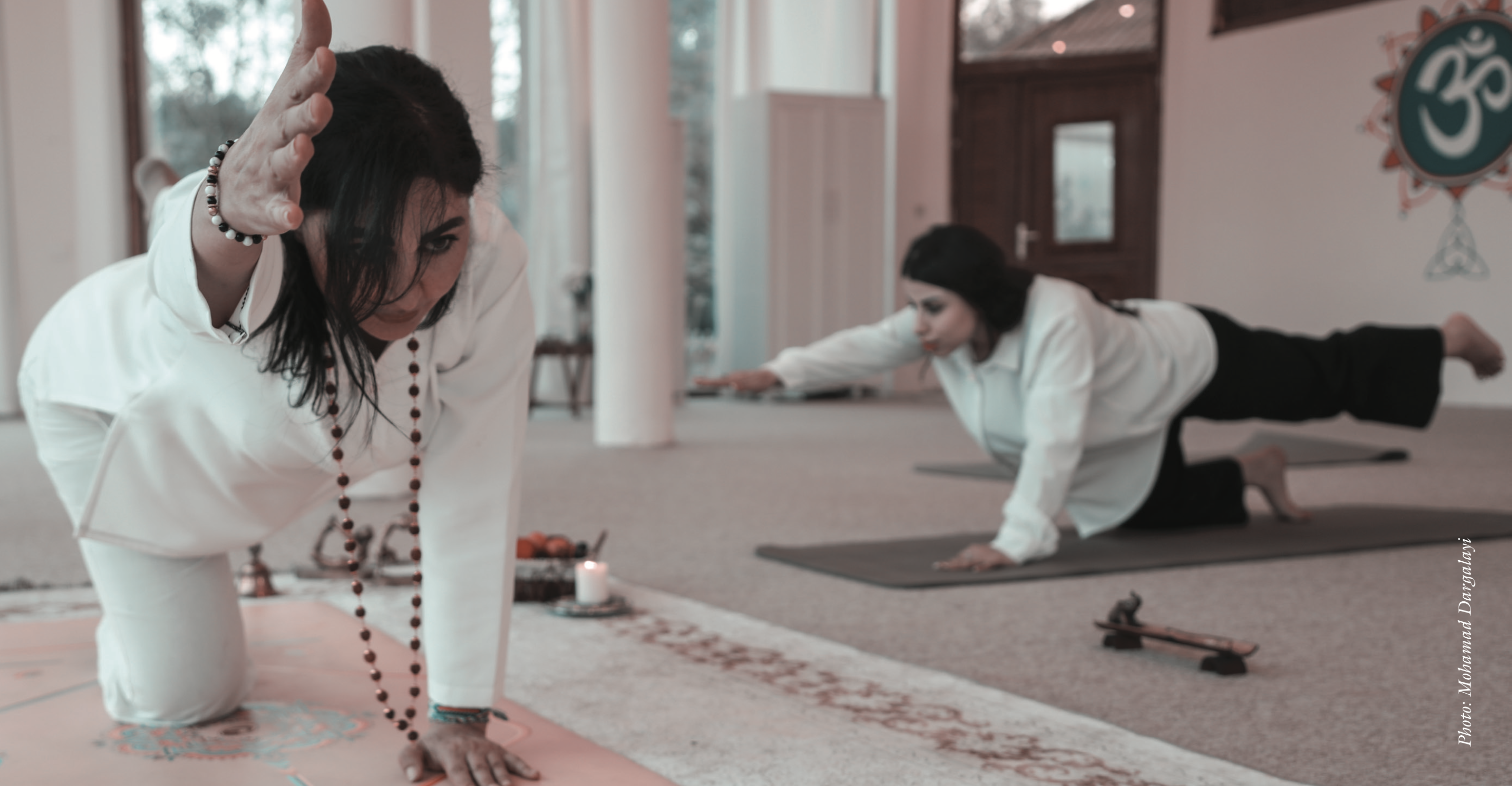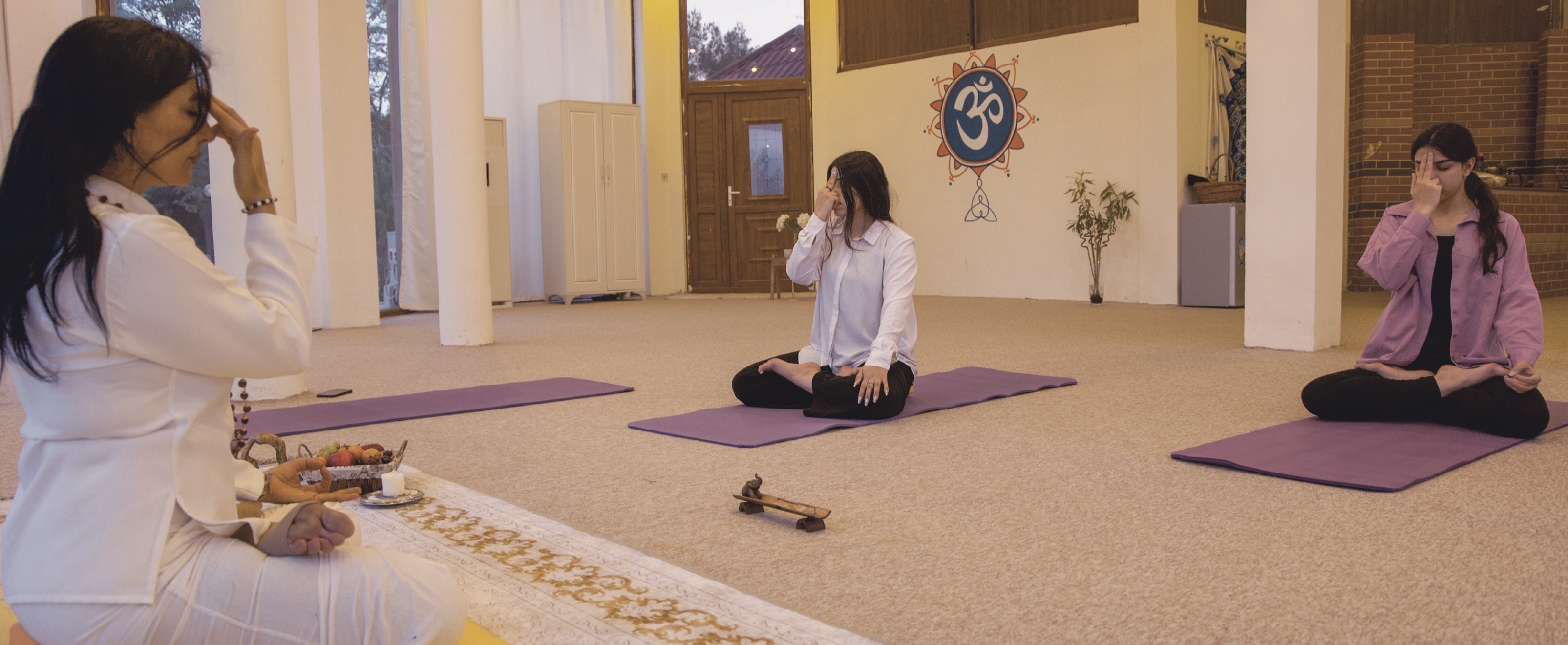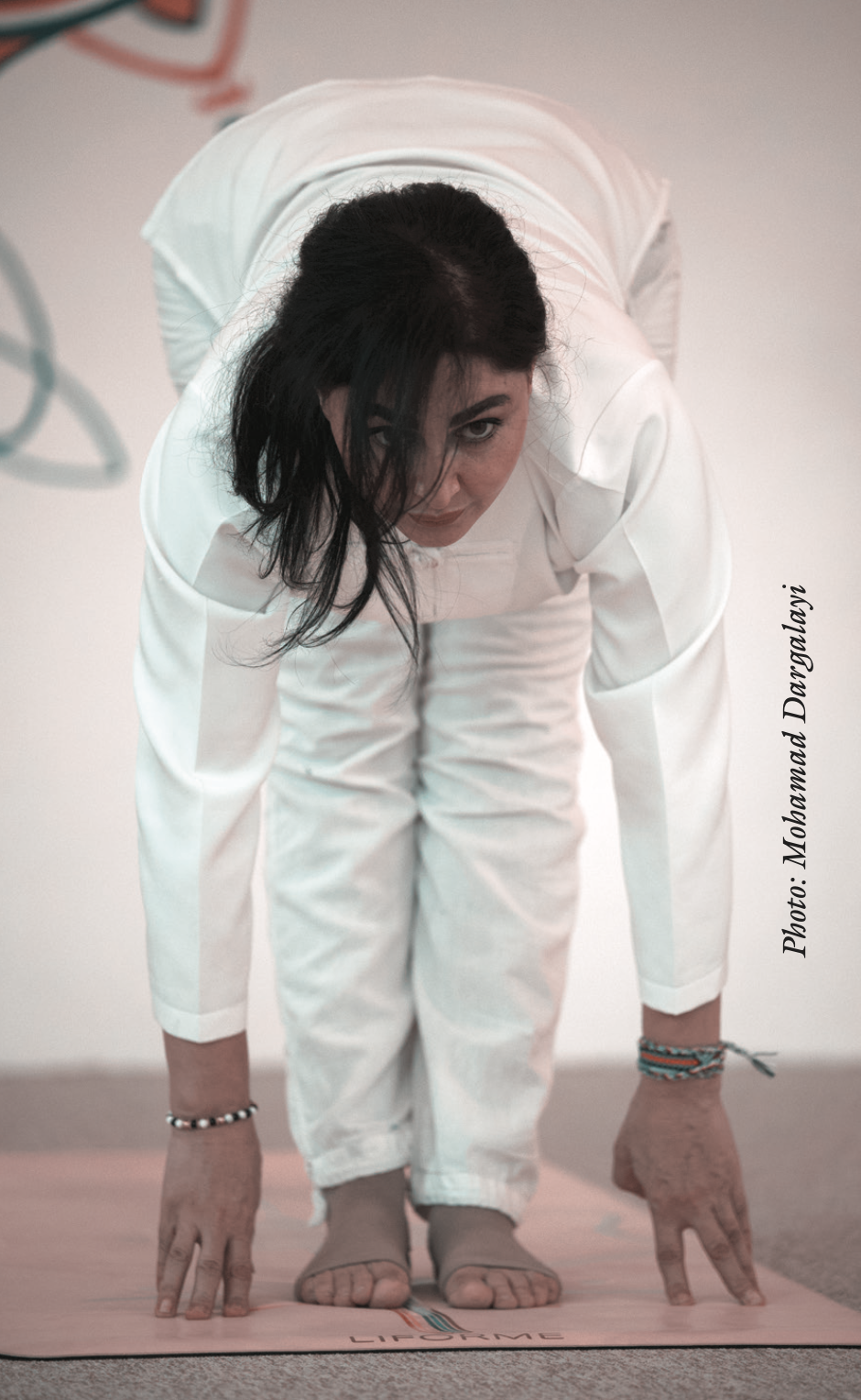In a serene sports hall nestled within Erbil's Sami Abdulrahman Park, a poised and radiant woman captures the essence of tranquility. Draped in a vibrant, floral scarf, she balances a candle in one hand and cradles a bowl of fresh fruit in the other. This is Parang Jihani, a yoga instructor dedicated to sharing the transformative power of yoga in the Kurdistan Region.
With 15 years of personal practice, Parang obtained her yoga teaching license in Iran in 2008. Since 2014, she has been spreading its teachings across Erbil, conducting classes at various centers and gyms. Presently, she guides her students at two gyms, with an average of 16 participants in each session.
Yoga has become Parang's life's work, to which she dedicates around two hours every day to her personal practice, in addition to the time she devotes to her students. While her husband also engages in yoga, albeit less frequently, he holds great respect for Parang's dedication and serves as a source of encouragement.

Knowing thyself
Parang explains that yoga, with its eight stages, encompasses a comprehensive science—an enlightening philosophical journey that transcends mere physical movements. While many countries focus predominantly on the physical aspects of yoga, labelling it as a sport, its true essence lies in guiding individuals towards a holistic way of life. It teaches self-awareness, providing a deeper understanding of oneself. Only by knowing oneself can one cultivate a purposeful existence.
"Yoga reveals the boundless energy within us and remains an ongoing process in life—one that demands commitment," Parang expresses. "Above all, yoga brings tranquility, fostering inner calm and independence. I could never abandon yoga. From my personal experience, I have found tremendous mental solace through this practice.”
“Yoga imparts profound life lessons,” she continues. “There are individuals who seemingly have it all, leading seemingly perfect lives, yet they sense a void within themselves. When they discover yoga, they find solace within their own beings. Practitioners of yoga must refrain from falsehoods, slander, consuming animal meat, and causing harm to others. Through yoga, we experience a universal soul that unites all beings in the vastness of the universe. In yoga, we connect and merge with the divine spirit. The Kurdish people have long been acquainted with yoga."
Parang explains that yoga serves as a guide for life, liberating individuals from anxiety, particularly in the modern era where busyness prevails. Those distanced from yoga struggle to grasp its true essence. Through yoga, one reconnects with one’s roots, discovering that everything one seeks to achieve lies within oneself. This realization unveils the immense strength and power within, surpassing the distractions of everyday life, be they material possessions or worldly desires.
"While yoga may not guarantee complete healing of ailments, it undoubtedly contributes to their alleviation. After adopting yoga, those around you will notice the gentleness and kindness that radiate from within. Yoga reconnects us with our origin," she adds.

Growing acceptance of yoga
In recent years, under the guidance of both foreigners and local instructors like Parang, the number of those who practice yoga in the Kurdistan Region has steadily increased. Yoga has garnered wider acceptance, dispelling misconceptions that previously hindered its growth.
Parang highlights that yoga is not in conflict with Islam, as some may have misunderstood in the past. Instead, yoga offers peace, a sentiment echoed across many religions. Consequently, both religious and non-religious individuals seek solace in yoga centers. Parang emphasizes the spiritual aspect of yoga, pointing out that many devoutly religious women, including herself, wear veils during sessions and incorporate prayer.
In the Kurdistan Region, World Yoga Day is celebrated on June 21 each year, attracting numerous yoga enthusiasts. The term "yoga" finds its origins in ancient writings, with its roots tracing back 5,000 years to India. Yoga has been known in the Kurdistan Region for many years, leading to the establishment of the Yoga Association in 1999.
Parang observes the shifting attitudes towards yoga, as more individuals warmly embrace it, making it an integral part of their lives. She envisions a future where a substantial portion of the Kurdistan Region's population will practice yoga, acknowledging that it offers an experience beyond words—an experience that must be personally undertaken to truly understand and appreciate its joys.
While yoga is utilized as a therapeutic practice in many countries, Parang also hopes for the opportunity to establish similar treatment centers in her homeland. The Kurdistan Region's breathtaking landscapes, with their mountains and natural beauty, provide an ideal environment for practicing yoga in harmony with one's soul.
Parang Jihani's unwavering dedication and passion for yoga is illuminating the path for countless individuals in the Kurdistan Region, fostering a sense of peace, self-discovery, and unity. As yoga continues to flourish, it serves as a bridge between cultures, connecting hearts and minds and harmonizing diverse communities in a shared journey towards inner fulfillment.

Mohammed Dargalayi is a journalist and photographer with 13 years experience. He is a member of IFJ Global.

